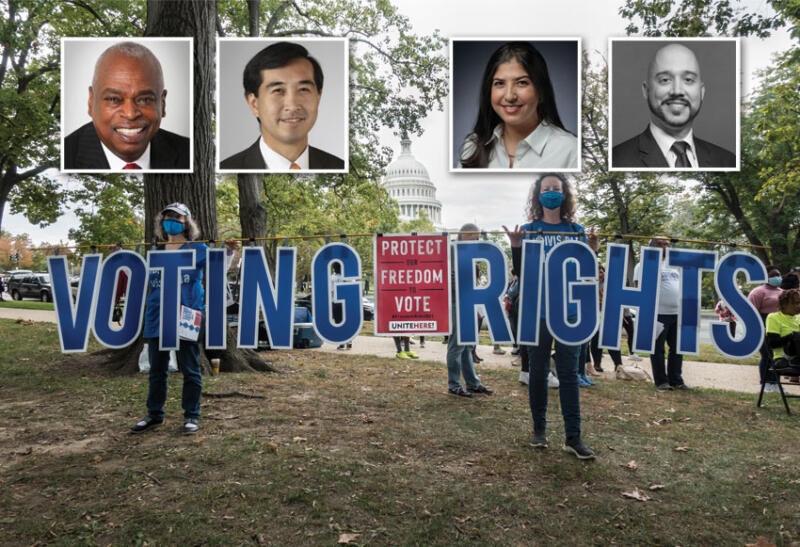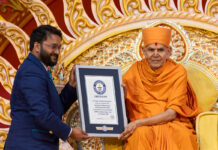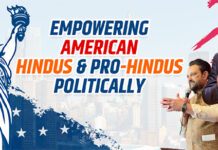Vidya Sethuraman
India Post News Service
Republicans in the Senate – for the fourth time since June – used the filibuster to block debate the John L. Lewis Voting Rights Advancement Act, the latest in a series of bills aimed to update the landmark Voting Rights Act and counter a wave of restrictive new voting laws passed by more than 20 Republican-led states. Experts and advocates at the Nov 5, 2021 briefing updated reporters and shared perspectives on next steps in the struggle to safeguard voting rights.
The “Voting Rights Act” protects the equal rights of ethnic minorities and new immigrants, and the “John Lewis Voting Rights Promotion Act” provides specific standards for the Department of Justice to clarify whether there is discrimination in state or local government election regulations. Before state and local governments can modify election rules, they must first obtain the approval of the Ministry of Justice. The bill also sets out a response clause to the Supreme Court’s precedent this summer.
Wade Henderson, Interim President and CEO of the Leadership Conference on Civil and Human Rights, the oldest civil rights coalition in the US, said that the John Lewis Voting Rights Promotion Act was unable to pass in many states. The voting rights bill used to be supported by both parties. Now the two parties do not trust each other, which will have a great impact on the existing system. “We have to defend everyone’s voice, and there should be no racial discrimination or disadvantaged discrimination in the election process.”
John C. Yang, Chief Executive of the Asian Americans Advancing Justice, pointed out that Asian Americans account for 7% of the U.S. population and are the fastest-growing ethnic group in the U.S. The voter turnout rate will also increase significantly in 2020. The point is to ensure that every citizen has the opportunity and right to vote in the most effective way. “Everyone’s right to vote is very important. Everyone should try their best to ensure that every voter’s voice is heard.” He encouraged the community to unite and promote change together.
Jacqueline De Leon, Staff Attorney, Native American Rights mentioned that there are many aboriginals in Arizona, but many aboriginals living in rural areas have difficulty in having the opportunity to vote, and some even have to travel long distances to vote.
Sean Morales-Doyle, Acting Director for the Democracy Program at the Brennan Center for Justice said that this year 19 states including Florida and Texas have blocked the passage of the “John Lewis Voting Rights Promotion Act” and saw more and more laws and measures restricting voting. He said that although the overall voter turnout rate in 2020 hit a record high, the voter turnout rates of whites and minorities are still very different, so measures must be taken to address this discriminatory phenomenon.







